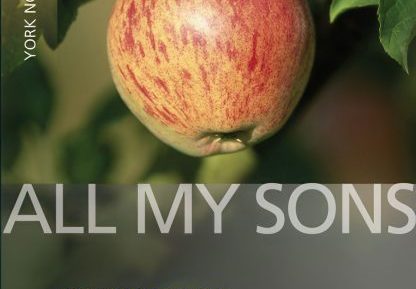Introduction:
In literature, a theme refers to the central idea that explored throughout a work. Universal issues or universal themes in literature are the important factors that explore the essence of the human experience. Moreover, the basic universal themes are coming to age, language and communication, transformation and change, identity and self discovery, appearance and reality, Manipulation and Influence, social class, Hopes, Dreams, and Aspirations, femininity and gender roles, Love, death and Family, Survival and Resilience, Beauty, heroism and Nature, Friendship, redemption and Justice . Here we’ll discuss the list of universal themes in literature with explanation;

Moreover, by adding those usual themes, literature captivates readers, inviting them to discover the complexities of human life through storytelling.
Coming of Age:
There are many universal themes in literature. Coming-of-age stories teach us about growing up and facing life’s challenges. In Harper Lee’s “To Kill a Mockingbird,” Scout learns how to be fair and kind, even when people are unfair to her. Moreover, In J.D. Salinger’s “The Catcher in the Rye,” Holden figures out what it means to be an adult while dealing with life’s difficulties.
Language and Communication:
Words can help us connect, but they can also cause misunderstandings. In George Orwell’s “1984,” powerful people change words to control what others think. Moreover, in Shakespeare’s plays, beautiful words express feelings and ideas that touch our hearts across time.
Transformation and Change:
People change in stories, sometimes on the outside, sometimes on the inside. Franz Kafka’s “Metamorphosis” tells the story of a person turning into a bug, feeling lonely and different. In addition, Charlotte Brontë’s “Jane Eyre” is about Jane becoming strong and independent after a tough start in life.
Identity and Self-Discovery:
Stories often explore who we are and what others expect from us. Ralph Ellison’s “Invisible Man” shows the struggle of someone trying to fit in but feeling unseen because of their race. In F. Scott Fitzgerald’s “The Great Gatsby,” a person’s public image doesn’t match who they truly are, showing how we balance ourselves with society’s expectations.
Appearance vs. Reality:
Stories often reveal that things may not be what they seem. In Oscar Wilde’s “The Picture of Dorian Gray,” a person looks perfect but hides a dark secret. These stories make us think about what’s important beyond just the surface.
Manipulation and Influence:
Sometimes in stories, characters use their energy to control others. As we know, in Shakespeare’s “Othello,” a individual named Iago hints and manipulates others, leading to a sad give up. These testimonies make us query how manipulation impacts people’s lives.
Social Class and Its Implications:
Stories frequently communicate about how society treats humans in a different way primarily based on their social reputation. So Charles Dickens’ “Great Expectations” follows a person shifting between different social classes, displaying how it changes their life. In this, Jane Austen’s “Pride and Prejudice” discusses the rules set by way of society and how they affect special humans.
Femininity and Gender Roles:
Books project what society expects from ladies and men. Virginia Woolf’s “Mrs. Dalloway” talks approximately a person preventing in opposition to what’s anticipated from them. So these memories ask us to reflect on consideration on equity and equality for all of us, no matter gender.
Hopes, Dreams, and Aspirations:
Stories show what takes place whilst human beings dream big and face disappointments. Additionally, John Steinbeck’s “Of Mice and Men” suggests the power it takes to chase dreams in a difficult world. F. Scott Fitzgerald’s “The Great Gatsby” questions if the American Dream brings happiness and if it is feasible for every body.
Love, Death, and Family:
As we talked about the universal themes in literature, we come to know about Love, death and family. Love, dying, and circle of relatives are large parts of many stories. Shakespeare’s “Romeo and Juliet” talks about younger love and circle of relatives issues. Moreover, Gabriel García Márquez’s “One Hundred Years of Solitude” suggests how households deal with love, loss of life, and adjustments in life.
Survival and Resilience:
Stories show how humans continue to exist and hold going in the course of tough instances. So William Golding’s “Lord of the Flies” talks approximately children surviving alone on an island. These testimonies display how robust people can be even when things are truely hard.
Beauty, Heroism, and Nature:
Books frequently have a good time splendor, bravery, and the wonders of nature. So Homer’s “The Odyssey” tells approximately a brave person’s adventure and challenges. Additionally, Mary Shelley’s “Frankenstein” connects characters’ emotions with nature, asking questions on what makes us human.
Friendship, Redemption, and Justice:
Universal themes in literature like, friendship and justice educate us vital lessons. So, Harper Lee’s “To Kill a Mockingbird” is set fairness and doing what’s right. Moreover, Charles Dickens’ “A Tale of Two Cities” talks about how love and forgiveness trade people’s lives.
Conclusion:
These are the some universal themes in literature. They’re vital because they educate us about ourselves and others. So through these themes, memories go away a long-lasting impact on how we see the arena and the lessons we examine.


